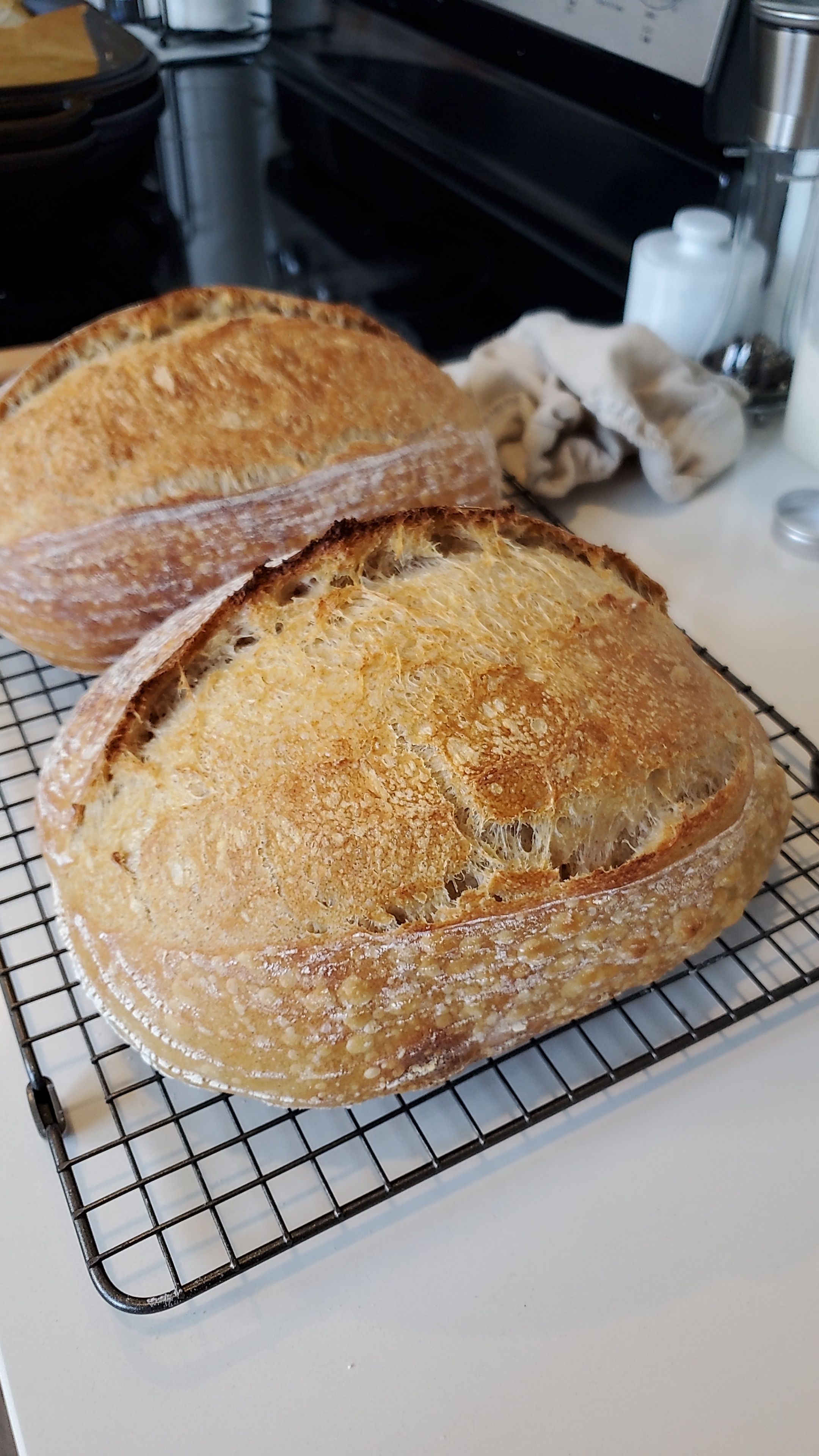
I’ve built up my own sourdough workflow that allows me to get tangy, high quality loaves in 12 hours instead of 24-36 hours, with all of the kitchen time condensed to the first 3 hours. It’s not the most basic recipe, but being able to decide if I want bread in the morning after I finished dinner is a level of flexibility that I haven’t found with other techniques.
More pics of loaves done with this workflow:





I am going to write a long form post/video explaining the steps I use with lots of data points, but at its core this is a 75% hydration Tartine country loaf.
What I think makes my process different my order of operations. I build the gluten network first via autolyze and fermentolyze steps, then build flavor by promoting the growth of lactic acid bacteria so that it outpaces the speed at which the yeast multiplies (dough temps as high as 100°F).
I have to stop that flavor buildup before the gluten network dissolves and the loaf over ferments, but once it’s sufficiently acidified I’m basically waiting for the bread to rise like any commercial yeasted recipe.
I am currently using a 9 hour cold retard @ 40°F to stop the acidification and raise the dough at the same time, but I’ve got a feeling that is longer than what’s actually necessary since the dough reaches temps that make the starter inert around 6 hours in. Since commercial breads can rise in like 4 hours in cold temps, I think there’s further optimization that can be done here, but I’m not waking up at 3 AM to bake bread anyway.
I’m really looking forward to this. I only bake occasionally, but I have a friend who bakes as a hobby and I’d love to share this with her.
It looks great! Would you mind sharing the recipe?
Not at all, but I do want to make sure it’s as simple and detailed as possible so that people can replicate it.
The amount of control you need over dough temp is pretty high but I think it can be done without dedicated equipment.
I just need a bit more time to stress test things and really master things before I teach others.
Nice bake! Are you using a high % of starter to get it done in 12hr?
Tartine country loaf for my ingredient ratios (20% starter). It’s all about controlling temperature.
Temp is def key. I made that recipe a few times. It’s good!
Looks excellent! I would love that for making some buttered toast
Which camera do you use? These photographs are really good!
Ha, thanks! These are from my Pixel 7, but I think the south facing windows in my kitchen do most of the heavy lifting.
I’d be really interested if you could share the process because I kept trying and didn’t manage to achieve this level of quality yet. Thanks for any insight on the process
Replied in another comment with the high level overview. More detailed write up coming soon!
This looks gorgeous!
Thanks Jesus!
Looks amazing, this makes me want to get back into bread making. I’ve been on a hiatus for a few months.
Looks really good, nice job!
C’est magnifique! Looks literally perfect, great job!
That looks good.
Looks great!!
12 hours is a great time frame.
I only made sourdough once because of the 36ish hour time frame was too much for me. I bake bread regularly with a poolish because it fits my schedule more, if I could use a perpetual starter and not have to buy yeast that’d be great.
What an absolute beautiful loaf with a perfect crumb 🤤
I let me starter die when I got covid at the beginning of the year but I was never able to get something as nice as this.
That’s a nice looking bread.








